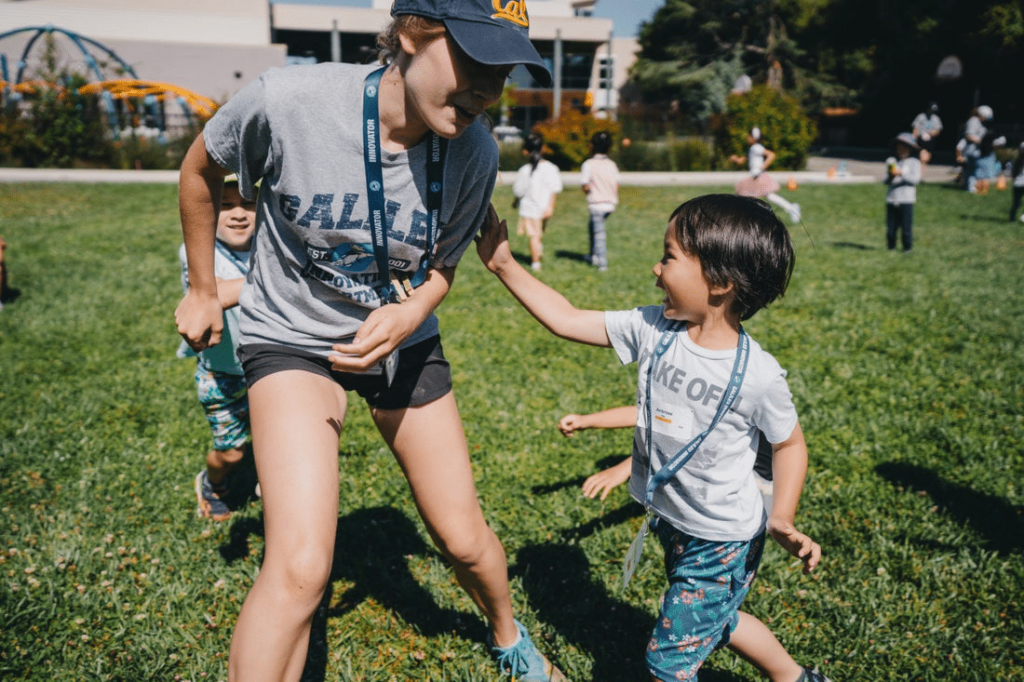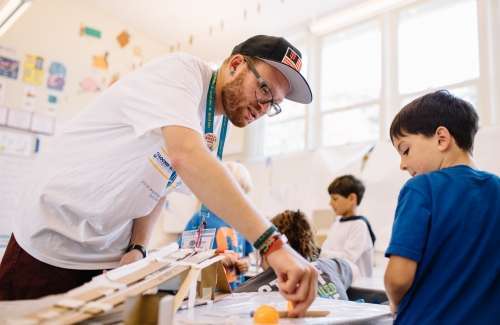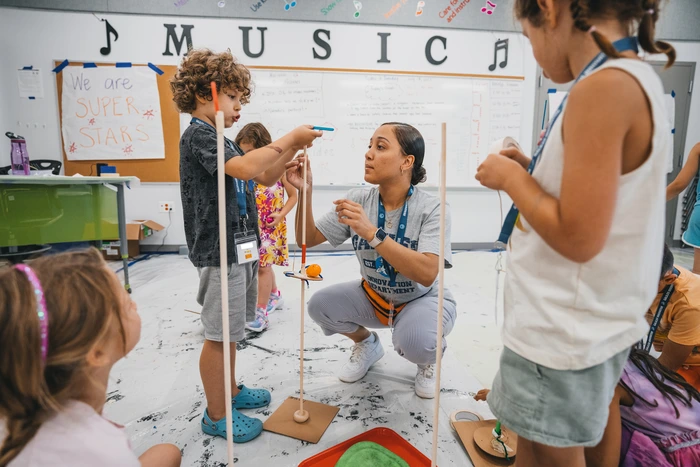For many caregivers, parent-teacher conferences provide the first opportunity of the year to sit down one-on-one with their child’s teacher to discuss the school year, the child’s experience, and their progress.
There’s no better time than a parent-teacher conference to ask questions about your child’s school experience and educational outcomes from a person who shares that time with them—their teacher. Here’s how to make the most of the time together.
Before the Conference
Talk to your child.
Start your process with the star of the show: your kid. Some children worry about family-teacher conferences, so it can be helpful to let them know that the purpose of the meeting is for you and the teacher to talk about how to help and support them.
Your child is your number-one source for conference questions. Ask them about their favorite and least favorite subjects and parts of the school day. Learn more about what they love, what frustrates them, what feels easy, and what feels really challenging. You might even ask them if they have any questions they’d like you to ask their teacher.
Make a list.
After connecting with your child and any child-rearing partners, write down all the questions that you’d like to ask or topics you’d like to address. Consider also what you might like the teacher to know about your child.
As you make your list and consider your wording, remember that the best parent-teacher conference questions build a positive environment and foster partnership between the family and teacher.
You might start your list as a brain dump, listing everything you’d like to cover if time were no constraint. After capturing everything on your mind, revisit your list, reordering your questions in order of importance. This will help you keep the most essential topics at the forefront of your conversation.
During the Conference
Ground yourself.
Family-teacher conferences can feel intimidating. If thinking of the upcoming conference fills you with anxiety, do your best to give yourself grace. These feelings are totally normal, particularly around conversations about children and how best to support them.
No matter the topic at hand, your child’s teacher shares your goal: creating an environment where your child is safe, happy, and learning. Show up to the conference exactly as you are—a person deeply invested in the wellbeing of your child.
Start with the big stuff.
Parent-teacher conferences are limited to specific windows. In fact, teachers often have conferences with other families scheduled before and after, necessitating a finite period of time for your conversation.
This is where your ordered list comes into play. Start with your must-cover topics so that you know you can cover them without running out of time. And, that said, take your time with these important questions, asking for clarification if necessary. Your child’s teacher is an invaluable resource, after all. If you’re not able to cover some topics in the time available, you can always ask to schedule another meeting at a later date.
Plan in partnership.
Parent-teacher conferences are often requested to address a specific challenge a child is experiencing. The goal: work together to assist the child in making progress.
For example, a teacher might schedule a conference to discuss a student who is reading below their grade level. Here, the family and teacher would create an action plan to increase the child’s reading skill with a network of in-school and at-home tactics. The teacher might work with the school to schedule support from a literacy specialist, while the family might institute extra daily reading time at home.
As you speak with your child’s teacher, consider how you might work together to turn the insights from your conversation into an action plan. What steps can you take as a family-teacher team to support your child, at home and at school?
Take notes.
Perhaps you’re one of the lucky ones who remembers every detail of a verbal conversation. If so, congratulations! The rest of us might consider committing the important elements of the conference to paper.
If you’re concerned that note-taking during a conference may be a faux pas, rest assured that you’re in the clear. Jotting down some bullet points on key takeaways, and particularly your action steps, demonstrates the care you’re taking in supporting your child.
After the Conference
Reconnect with your kid.
Your child may be curious about the conference. Take care to emphasize the positive elements of your conversation with their teacher, and be transparent about the challenges you discussed as well. Tell them about the action plan you and their teacher created, reiterating that the whole point of a parent-teacher conference is to help them be safe, happy, and successful at school.
Keep in touch.
Don’t let your relationship with your child’s teacher end here! Whether the teacher prefers to connect via email, over the phone, through continued meetings, or a blend of the three, keep in touch to continue building your family-teacher partnership. Communicating with your child’s teacher helps you both in creating strong in-home and at-school supports for your child.





